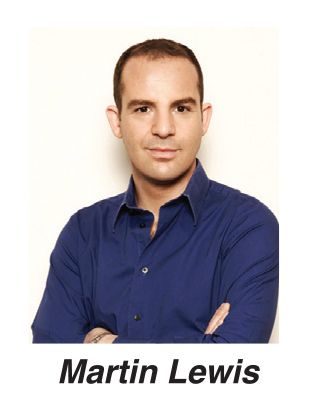Overdrafts by Martin Lewis @MartinSLewis
Debit cards can be debt cards too. Overdrafts are a debt like any other and the key is to cut the rate, repay faster and avoid any penalties. Here are my top ten things you need to know.
- Get PAID £100 to get a 0% overdraft. Best for overdrafts under £500 www.Firstdirect.com
It offers accepted new switchers £100, a standard £250 interest-free overdraft (above £250, but within your limit, it’s 15.9% EAR, still relatively cheap). Do you qualify? You need to pay in at least £1,000/mth. All banks will do a credit check when you apply. - Free £150 bank switch bonus. Best for those who just dip into their overdraft www.co-operativebank.co.uk It currently gives a £150 switching bonus. You can also get up to £5.50/mth on its Everyday Rewards scheme. Its authorised overdraft is 18.9% EAR. Do you qualify? You’ll need to pay in at least £800/mth and switch at least four direct debits.
- Switch to 12 month 0% bank. Good for those with Bigger overdrafts. New customers with www.nationwide.co.uk’s FlexDirect get a year’s fee-free overdraft. After a year, it’s just 50p/day. There’s no min pay-in for its 0% overdraft, but you need to pay in £1,000/mth if you want its 5% in-credit interest.
- You can SHIFT overdrafts to special 32mth 0% credit cards too. A few specialist money-transfer cards let you pay cash into your bank to pay off your overdraft, then you owe them instead. This is useful for big overdrafts. www.virginmoney.com gives accepted customers 32mths 0% for a one-off 1.69% fee (min £3).
Always follow the Money Transfer Golden Rules:
a) These are special cards. Most don’t allow this, so be careful. There’s step-by-step help in my full money transfers guide at www.moneysavingexpert.com/moneytransfers.
b) Always repay the monthly minimum or you’ll lose the 0% deal.
c) Plan to clear by the end of the 0% period or they jump to the full rate, 20.9% and 20.6% rep APR. - Bank-charge reclaiming isn’t dead. With fees of up to £6/day or £15/transaction, they can mount up to £100s or £1,000s a year. Reports of the death of bank-charge reclaiming have been exaggerated. It can be done, though you need to be in financial hardship to claim. Help and template letters at www.moneysavingexpert.com/reclaim
- Shift your direct debits to minimise fees. Ask companies you pay to shift your direct debits to just before you’re paid. This artificially boosts your balance, so you’re in the red for less time, meaning fewer charges – but don’t forget those bills are coming.
- Manage your way back into credit. Do a money makeover, checking everything you spend money on to see if you’re overspending such as energy, insurance, phone, broadband and more. Many can save £1,000s. Then do a detailed budget and stick to it. Full help to do this at www.moneysavingexpert.com/moneymakeover.
- Compare overdraft debt rate to the other debt, repay highest interest first. If you’ve multiple debts, write a list of what you owe, then see which costs most and pay that off first. Once the most expensive debt is cleared, you’re ready to tackle the next, and so on.
- Savings usually pay you less than an overdraft costs. Repay debt with savings. You may think: “But I’ll have no savings if the boiler packs up or the roof falls in.” True, but if an emergency strikes, you can go back into overdraft and you’ll be no worse off.
- Struggle to control spending? Shift to a no-overdraft account. Basic bank accounts provide a no-frills, no-overdraft current account service. So clear your current overdraft and you could move to one. They used to charge fees if you spent more than you had, but since January those have stopped. If you spend when you’ve not got money, it’ll still be rejected, but now there’s no charge. Options include www.barclays.co.uk Cash Card and www.co-opbank.co.uk Cashminder account.
Martin Lewis is the Founder of Money Saving Expert. To join the 11.5 million people who read his Martin’s Money Tips weekly email, go to www.moneysavingexpert.com/latesttip

